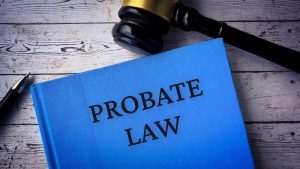 If you have been charged with a criminal offense, it’s important to understand the difference between probation and parole. These two terms are often confused, even though they couldn’t be more different. One involves staying out of the penitentiary and the other involves how the court supervises a defendant’s conduct after being released from imprisonment.
If you have been charged with a criminal offense, it’s important to understand the difference between probation and parole. These two terms are often confused, even though they couldn’t be more different. One involves staying out of the penitentiary and the other involves how the court supervises a defendant’s conduct after being released from imprisonment.
Probation in Chicago, IL
After a person has been arrested, charged, and later convicted of a crime, some cases are eligible for probation, depending on the nature of the crime and the person’s criminal history. Probation is a type of sentence that the court can order. It allows the person to stay out of jail and lays out rules that an offender must follow to avoid going to jail or the penitentiary.
If you were charged and convicted of misdemeanor assault for instance, the judge might sentence you to probation. This would be instead of a jail sentence. The judge also would give you the terms of your probation, and those terms would depend on the charges and the individual. For example, one of the conditions of your probation might be to remain clean and sober for the extent of the probation or to do community service.
This could include staying out of bars or other entertainment establishments that serve alcohol. You might also be required to get an alcohol evaluation and attend alcohol or anger management counseling. Judges may also set rules that the offender may not contact certain individuals that are known to have a poor influence on them. If a person breaks the rules of their probation, they may be ordered to serve out the remainder of their sentence in jail. The judge might also extend the length of probation instead.
But even if the offender abides by the rules throughout the period of probation, a sentence of probation is still a conviction. Although there are some special probations on certain drug cases for instance that will result in the charge being reduced or dropped at the end, generally probation is a permanent conviction.
The offender may be ordered to complete rehabilitation or undergo regular drug testing. Many times, individuals who break the rules of their probation will get a second chance; but not always. If the violation is serious enough, it means that the judge will revoke the probation and mandate that the offender finish their sentence in jail.
Parole in Chicago, IL
Parole is completely different from probation. It is linked to an offender’s time in jail, rather than a sentence that avoids jail. It is a condition that allows an offender to finish their jail sentence in the community instead of being locked up. For example, if a person is charged and convicted of aggravated assault and receives a three-year sentence, they may be released onto parole (now called “mandatory supervised release”) after a certain amount of time for good behavior has been spent in jail.
The parole board uses an offender’s behavior while incarcerated as some indication that early release with community supervision is a safe alternative. If an offender is granted parole, they must follow conditions and rules that the parole board puts into place.
The offender is monitored regularly by a parole officer. Any time the rules of the parole are broken, the offender can be sent back to jail for the remainder of their sentence. The conditions for parole are set based on the individual and the conviction.
The goal of parole is to help a person reintegrate back into society. Some of the rules can include staying in the same state, maintaining employment, making regular payments on a fine or restitution associated with the conviction, and staying out of legal trouble.
What Are the Key Similarities Between Parole and Probation?
 As discussed, probation is the sentence a judge gives to an individual after they’re convicted while parole is earned by the offender with good behavior in jail. While they are different legal processes, there are similarities between the two.
As discussed, probation is the sentence a judge gives to an individual after they’re convicted while parole is earned by the offender with good behavior in jail. While they are different legal processes, there are similarities between the two.
- They are conditional:Probation and parole are granted based on the condition that the offender will follow certain rules.
- Can be revoked:If the offender breaks the rules of parole or probation, a judge or parole board can revoke either probation or parole and send the individual to jail for the fist time or back to jail to finish out their sentence.
- Privilege:Neither parole nor probation is a right of any offender. Instead, it is a privilege that the judge or parole board may or may not allow.
Call Mitchell S. Sexner & Associates LLC Today for Help with Criminal Charges
If you have been arrested or charged with a criminal offense you want an experienced and compassionate attorney to represent your rights. We understand that to have a superior defense you must be proactive. During your free consultation, we’ll give you an honest appraisal of your case. If you choose to hire us, we’ll then work as a team to give you the best defense possible. Call Mitchell S. Sexner & Associates LLC at (312) 644-0444 or contact us online to schedule your free consultation today. Don’t wait until it’s too late to hire a Chicago criminal defense attorney.
